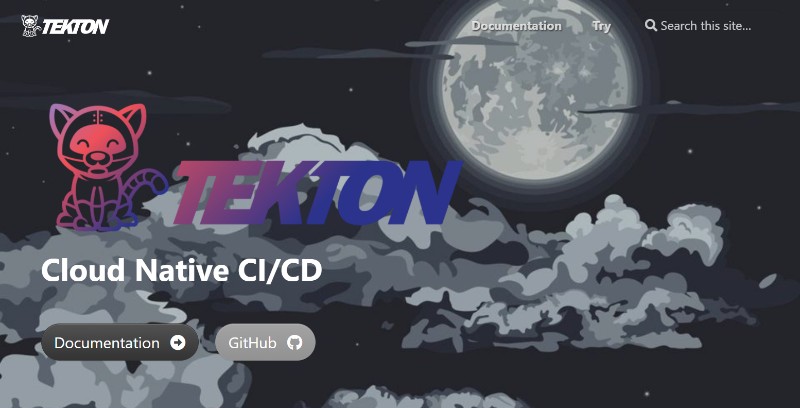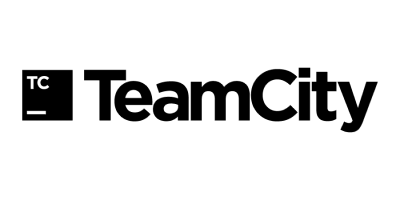Top 6 Cloud Alternative (Similar) to Tekton
Tekton alternatives - Best enterprise software similar to Tekton. Find the top competitors of Tekton.
Tekton is a powerful and flexible open-source framework for creating CI/CD systems, allowing developers to build, test, and deploy across cloud providers and on-premise systems.
- Standardization: Tekton standardizes CI/CD tooling and processes across vendors, languages, and deployment environments. It works well with Jenkins, Jenkins X, Skaffold, Knative, and other popular CI/CD tools.
- Built-in best practices: Tekton lets you create CI/CD systems quickly, giving you scalable, serverless, cloud-native execution out of the box.
- Maximum: flexibility Tekton abstracts the underlying implementation so that you can choose the build, test, and deploy workflow based on your team’s requirements.
Best Cloud Tekton alternatives and competitors

Jenkins is an open-source automation server that enables developers worldwide to build, test, and deploy their software reliably. Jenkins provides hundreds of plugins to support building, deploying, and automating any project.
- Continuous Integration and Continuous Delivery: As an extensible automation server, Jenkins can be used as a simple CI server or the continuous delivery hub for any project.
- Easy installation: Jenkins is a self-contained Java-based program, ready to run out-of-the-box, with packages for Windows, Linux, macOS, and other Unix-like operating systems.
- Easy configuration: Jenkins can be easily set up and configured via its web interface, including on-the-fly error checks and built-in help.
- Plugins: With hundreds of plugins in the Update Center, Jenkins integrates with practically every tool in the continuous integration and continuous delivery toolchain.
- Extensible: Jenkins can be extended via its plugin architecture, providing nearly infinite possibilities for what Jenkins can do.
- Distributed: Jenkins can efficiently distribute work across multiple machines, helping drive builds, tests, and deployments across multiple platforms.

Azure Pipelines is part of the Microsoft Azure DevOps service. Previously known as Team Foundation Server (TFS), Azure DevOps is a set of collaborative software development tools hosted on-premises and available as a part of the Microsoft Azure cloud service.
Automate your builds and deployments with Pipelines.- Multiple language support: Build, test, and deploy Node.js, Python, Java, PHP, Ruby, C/C++, .NET, Android, and iOS apps. Run in parallel on Linux, macOS, and Windows.
- Containers and Kubernetes: Easily build and push images to container registries like Docker Hub and Azure Container Registry.
- Advanced workflows and features: Take advantage of easy build chaining and multi-phased builds—support for YAML, test integration, release gates, reporting—and more.

TeamCity is a general-purpose CI/CD solution that allows the most flexibility for all sorts of workflows and development practices. Whether you use tools like Maven, npm, Gradle and MSBuild or run your own Docker containers, TeamCity understands how your projects are built and lets you set up CI/CD with ease and gives you complete visibility into your pipelines.
- Get started quickly: It’s straightforward to get started with TeamCity. Setting up your first pipeline takes less than 2 minutes and can be done through a simple UI without code.
- Real-time reporting: On-the-fly build progress reporting. The results of your builds and tests are reported in real-time, so you can iterate quickly and ship new features faster.
- Build chains: With build chains, you can build apps with source code distributed across many repositories, run multiple builds and tests in parallel, and take advantage of many smart optimizations that save your time when running incremental builds.

Spinnaker provides application management and deployment to help you release software changes with high velocity and confidence. Spinnaker is an open-source, multi-cloud continuous delivery platform that combines a powerful and flexible pipeline management system with integrations with the major cloud providers.
- Automated Releases: Create deployment pipelines that run integration and system tests, spin up and down server groups, and monitor your rollouts. Trigger pipelines via git events, Jenkins, Travis CI, Docker, CRON, or Spinnaker pipelines.
- Built-in Deployment Best Practices: Create and deploy immutable images for faster rollouts, easier rollbacks, and the elimination of hard to debug configuration drift issues.
- Multi-Cloud: Deploy across multiple cloud providers, including AWS EC2, Kubernetes, Google Compute Engine, Google Kubernetes Engine, Google App Engine, Microsoft Azure, Openstack, Cloud Foundry, and Oracle Cloud Infrastructure










